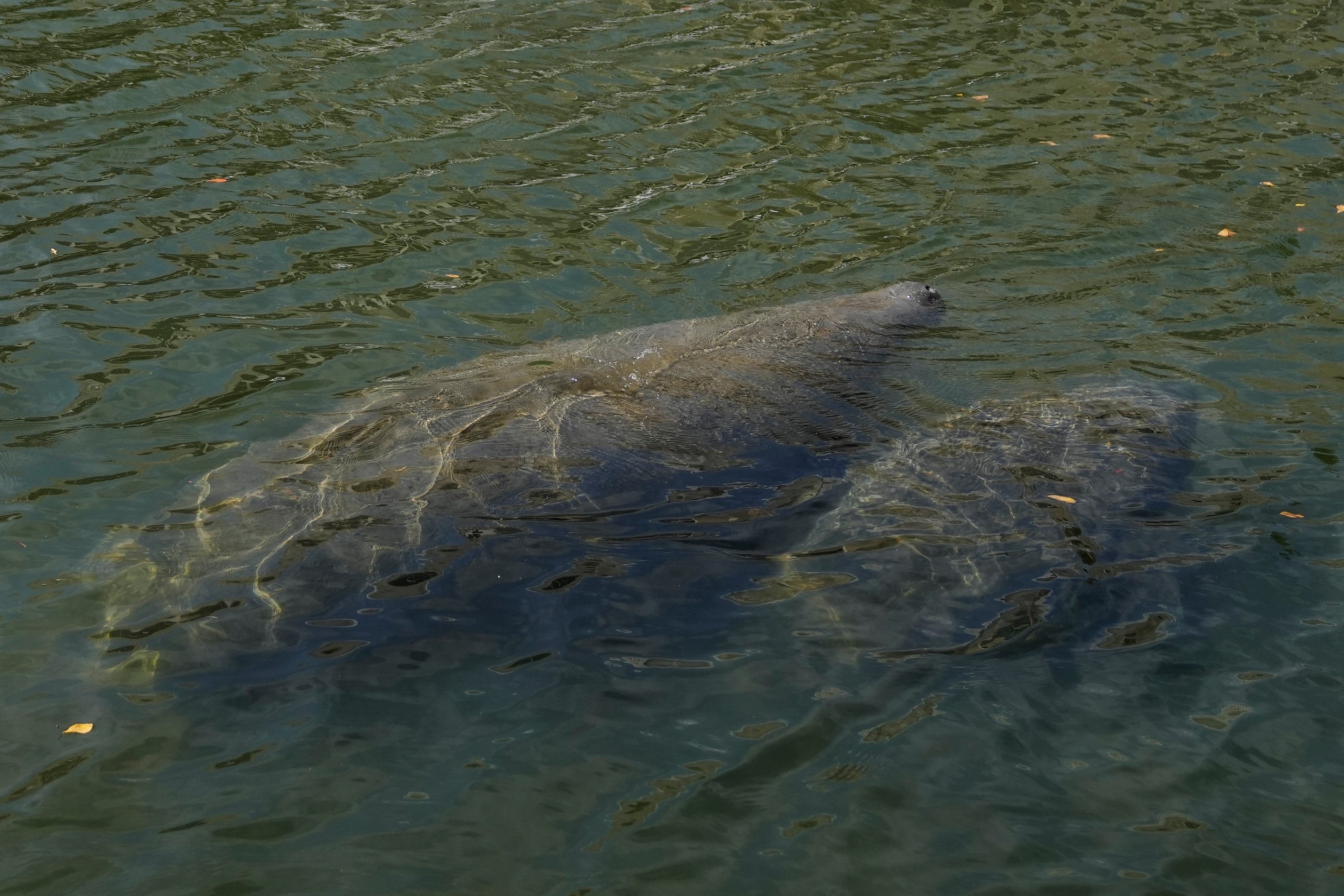Florida manatee feeding program to wind down as temps warm
The experimental program that has fed tons of lettuce to starving Florida manatees will begin to wind down soon as the weather warms

Your support helps us to tell the story
From reproductive rights to climate change to Big Tech, The Independent is on the ground when the story is developing. Whether it's investigating the financials of Elon Musk's pro-Trump PAC or producing our latest documentary, 'The A Word', which shines a light on the American women fighting for reproductive rights, we know how important it is to parse out the facts from the messaging.
At such a critical moment in US history, we need reporters on the ground. Your donation allows us to keep sending journalists to speak to both sides of the story.
The Independent is trusted by Americans across the entire political spectrum. And unlike many other quality news outlets, we choose not to lock Americans out of our reporting and analysis with paywalls. We believe quality journalism should be available to everyone, paid for by those who can afford it.
Your support makes all the difference.The experimental program that has fed tons of lettuce to starving manatees in Florida will begin to wind down as the weather warms, wildlife officials said Wednesday.
The feeding program at a power plant on Florida's east coast so far has provided the slow-moving marine mammals with more than 128,000 pounds (58,000 kilograms) of food financed almost entirely by donations from across the U.S. and beyond.
The federal-state effort is aimed at preventing, as much as possible, another die-off of manatees like Florida saw in 2021. Last year, more than 1,100 manatees died — far above the five-year average of about 202 annual deaths — mostly of starvation because their favored seagrass source of food is disappearing due to water pollution.
This year, as of March 4, there have been 400 confirmed manatee deaths in Florida, according to the Florida Fish and Wildlife Conservation Commission. Last year at this time, the number of deaths was 430.
Ron Mezich, who oversees the manatee provisioning effort for the Florida commission, said the feeding program will continue for another week or so until the manatees move away from the winter, warm-water foraging spots.
“We're not finished with our operations this year. We're still trying to finish this year and see how it worked,” Mezich said during an online news conference.
In recent days, the manatee attendance at the Florida power plant where feeding takes place has fluctuated from a high of 95 on Tuesday to a low of about 40, officials said.
“We are getting fewer animals at the feeding site,” said Brian Spears of the U.S. Fish and Wildlife Service. “We are monitoring what the animals do and how they react.”
About 7,500 manatees, also known as sea cows, live in Florida waters. They are listed federally as a threatened species, although there are efforts to give them the heightened endangered designation.
As of Wednesday, officials said about 83 manatees are being rehabilitated at aquariums and other facilities across the U.S., such as SeaWorld in Orlando. The Georgia Aquarium in Atlanta recently took on two young orphaned manatees, part of a larger effort by similar facilities to care for them.
The long-term solution is more difficult. Pollution from agriculture, septic tanks, urban runoff and other sources is killing the seagrass on which manatees and other creatures rely, but fixing that issue will require time and money.
Florida legislators last year provided $8 million for several seagrass restoration projects that will get off the ground this year, officials said. But it could take five years to get them done — meaning Florida's manatees may need more lettuce next winter.
“It's likely we may have to do this again,” said Tom Reinert, FWC south regional director.
Wildlife officials stress that people should not feed manatees on their own because it could cause the animals to associate people with food. Anyone who sees a distressed or dead manatee should call FWC's wildlife hotline at 888-404-3922.